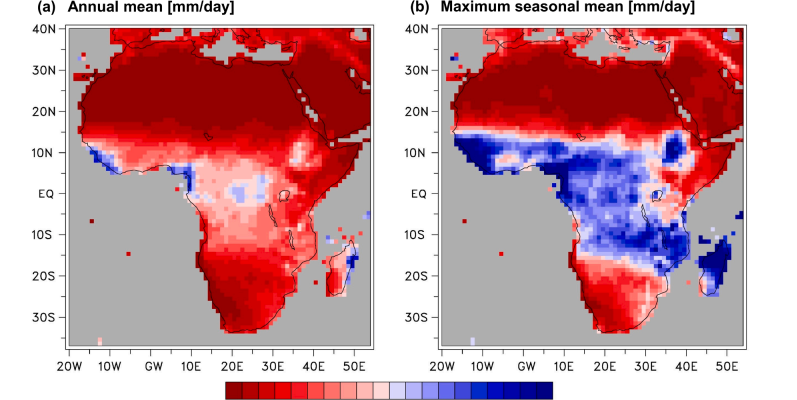Assessing effects of climate change on agricultural systems and the potential for ecological intensification to increase food security in developing countries is essential to guide management, policy-making and future research. ‘Push-pull’ technology (PPT) is a poly-cropping design developed in eastern Africa that utilizes plant chemicals to mediate plant–insect interactions. PPT application yields significant increases in crop productivity, by reducing pest load and damage caused by arthropods and parasitic weeds, while also bolstering soil fertility. As climate change effects may be species- and/or context-specific, there is need to elucidate how, in interaction with biotic factors, projected climate conditions are likely to influence future functioning of PPT. Here, we first reviewed how changes in temperature, precipitation and atmospheric CO2 concentration can influence PPT components (i.e., land use, soils, crops, weeds, diseases, pests and their natural enemies) across sub-Saharan Africa (SSA). We then imposed these anticipated responses on a landscape-scale qualitative mathematical model of maize production under PPT in eastern Africa, to predict cumulative, structure-mediated impacts of climate change on maize yield. Our review suggests variable impacts of climate change on PPT components in SSA by the end of the 21st century, including reduced soil fertility, increased weed and arthropod pest pressure and increased prevalence of crop diseases, but also increased biological control by pests’ natural enemies. Extrapolating empirical evidence of climate effects to predict responses to projected climate conditions is mainly limited by a lack of mechanistic understanding regarding single and interactive effects of climate variables on PPT components. Model predictions of maize yield responses to anticipated impacts of climate change in eastern Africa suggest predominantly negative future trends. Nevertheless, maize yields can be sustained or increased by favourable changes in system components with less certain future behaviour, including higher PPT adoption, preservation of field edge density and agricultural diversification beyond cereal crops.
Authors: Nikolaos Alexandridis, Benjamin Feit, Job Kihara, Tim Luttermoser, Wilhelm May, Charles Midega, Ingrid Oborn, Katja Poveda, Gudeta W. Sileshi, Beyene Zewdie, Yann Clough & Mattias Jonsson
Contact address: nikos.alexandridis@cec.lu.se
Institution: Lund University, Lund, Sweden
Twitter name of the institution: @lunduniversity
Twitter link: https://twitter.com/lunduniversity
Available downloads:


